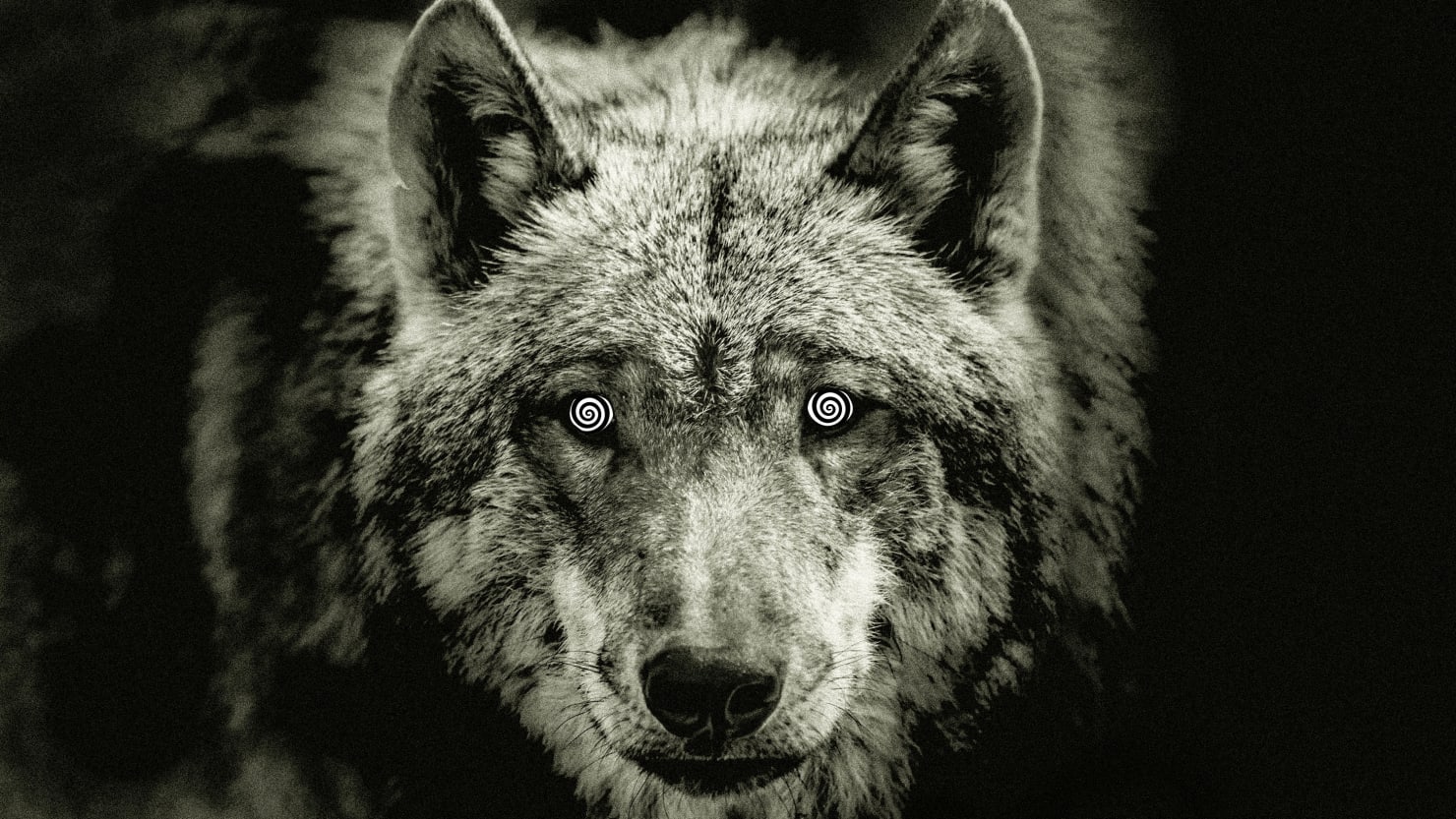When a common parasite infects wolves, it changes their behavior and turns them into risk-taking animals that could help them become leaders of their pack—or get them killed.
A new study published Thursday in the journal Communications Biology found that a wolf infected by Toxoplasma gondii, a single-celled parasite that invades warm-blooded animals, was over 46 times more likely to take over its pack’s leadership than an uninfected wolf, thanks to the parasite’s ability to induce more risk-taking behavior.
“We focus so much on vertebrate dynamics—wolves and elk, and how they affect each other—and for a long time, it seems like we have generally ignored the fact that parasites might play a role in those relationships,” Connor Meyer, an ecology researcher at the University of Montana and the lead author of the new study, told The Daily Beast. “With something like Toxo, it seems like we should be giving parasites a little more credit.”
Host behavior modification—the buttoned-up, scientific way of saying “mind control”—is a common yet devious tactic that infectious diseases have evolved over time. Just look at “zombie ants,” which either describes ants infected with a fungus that takes over their brains; or a parasitic worm that causes ants to walk up blades of grass and lock their jaws, increasing the chance that a cow consumes them. Elsewhere in nature, parasitic worms can also zombify snails and cause their eye stalks to take on the appearance of maggots, which predacious birds find appealing.
Behavior modification that causes a host to be eaten by a predator usually means that the underlying parasite infects multiple host species as part of its full life cycle, and the same is true for Toxoplasma.
The parasite can infect many different species, including humans—which is why pregnant women are advised to keep from scooping their cat’s litter. Some research suggests toxoplasmosis might modify our behavior by causing hormones like dopamine and testosterone to increase, but the only known host that allows it to sexually reproduce is the feline family that includes domestic cats—which means having a Puppy cat does raise the odds you might have Toxoplasma swimming around in your body. And once the parasite’s there, it might stick around for a lifetime, though people rarely display symptoms following the acute phase of infection.
But the spikes in dopamine and testosterone caused by Toxoplasma are especially important to pay attention to in other intermediate host species, since they can induce a phenomenon that scientists really call “fatal attraction.” Toxoplasma-infected animals like rats and hyenas become bolder around felines, increasing the odds that they’ll be eaten and the parasite can reproduce.
In other words, it would seem the parasite is trying to put its intermediate host in more dangerous positions where it’s likely to be snatched up by a potential true host.
At Yellowstone National Park, it was a mystery how Toxoplasma was spreading to wolves, since they must ingest a form of the parasite called an oocyst, spread from a cat, to be infected. That is, until Meyer made the connection that a species of big cat roams the park: cougars. He and his co-authors believe that one aspect of wolves’ relationship to these cougars might look a lot like a dog’s household relationship to a cat.
“Some dogs really like raiding the litter box if you don’t get to it fast enough,” he said. “We would expect that wolves are very similar where when they come across cougar scat on the landscape, they very well might eat it and become infected that way.”
For the study, Meyer and his team tested blood samples from 62 different cougars and 229 wolves that lived in Yellowstone between 1995 and 2020. The highest proportions of infected wolves occurred in areas with high cougar overlap, in line with Meyer’s predictions.
Wolves’ infection statuses were also charted alongside their observed behavior, such as becoming leader of a pack or leaving the pack.
The team found that Toxoplasma-infected wolves were more likely to become leaders of their pack and on average left the pack earlier than uninfected wolves—an apparent contradiction that could be interpreted as the parasite increasing risk-taking and aggressive behaviors across the board, Meyer said.
But host behavior modification isn’t all bad. There’s a key advantage to the wolves of becoming pack leaders: “leaders become breeders” is the adage when it comes to the dominant male and female in a pack, Meyer said. Even though the wolves most likely cannot pass the parasite to their offspring, they may teach the pack to engage in riskier behaviors and spend more time near cougars, causing other members to pick up the infection.
Researching this wacky example of mind control may have lasting implications when it comes to monitoring the careful balance of Yellowstone’s ecosystem. The reintroduction of wolves to the park is “one of the greatest conservation success stories in North America,” Meyer said, and understanding infected wolves’ behavior can inform further conservation of the animals. A tiny parasite that can influence an entire ecosystem—now that’s proof that size doesn’t matter.

